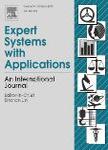版权所有:内蒙古大学图书馆 技术提供:维普资讯• 智图
内蒙古自治区呼和浩特市赛罕区大学西街235号 邮编: 010021

作者机构:Anadolu Univ Dept Comp Engn TR-26555 Eskisehir Turkey
出 版 物:《EXPERT SYSTEMS WITH APPLICATIONS》 (专家系统及其应用)
年 卷 期:2016年第44卷
页 面:217-229页
核心收录:
学科分类:1201[管理学-管理科学与工程(可授管理学、工学学位)] 0808[工学-电气工程] 08[工学] 0812[工学-计算机科学与技术(可授工学、理学学位)]
基 金:Anadolu University [1403F069]
主 题:Robustness Detection Shilling Distributed data Arbitrarily Privacy Collaborative filtering
摘 要:Due to different shopping routines of people, rating preferences of many customers might be partitioned between two parties. Since two different e-companies might sell products from the same range to the identical set of customers, the type of data partition is called arbitrarily. In the case of arbitrarily distributed data, it is a challenge to produce accurate recommendations for those customers, because their ratings are split. Therefore, researchers propose methods for enabling data holders collaboration. In this scenario, privacy becomes a deterrent barrier for collaboration, accordingly, the introduced solutions include private protocols for protecting parties confidentiality. Although, private protocols encourage data owners to collaborate, they introduce a new drawback for partnership. Since, whole data is distributed and parties do not have full control of data, any malicious user, who knows that two parties collaborate, can easily insert shilling profiles to system by partitioning them between data holders. Parties can have trouble to find such profile injection attacks by employing existing detection methods because of they are arbitrarily distributed. Since profile injection attacks can easily performed on arbitrarily distributed data-based recommender systems, quality, and reliability of such systems decreases, and it causes angry customers. Therefore, in this paper, we try to describe aforementioned problems with arbitrarily distributed data-based recommender systems. As a first step, we analyze robustness of proposed arbitrarily distributed data-based recommendation methods against six well-known shilling attack types. Secondly, we explain why existing detection methods cannot detect malicious user profiles in distributed data. We perform experiments on a well-known movie data set, and according to our results, arbitrarily distributed data-based recommendation methods are vulnerable to shilling attacks. (C) 2015 Elsevier Ltd. All rights reserved.